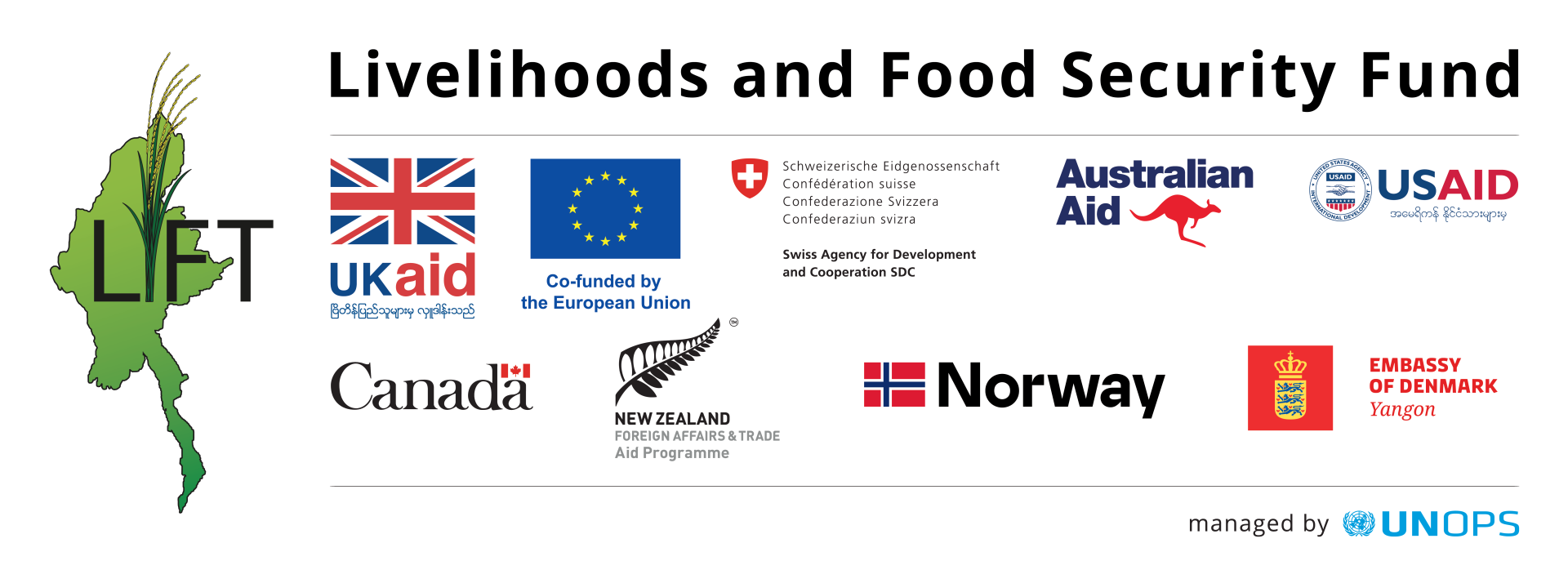Despite substantial expansion of the financial sector since Myanmar’s economy started opening in 2012, large sections of the population remain unserved or underserved. This is particularly the case among vulnerable groups and ethnic populations, or in border states and conflict-affected areas. Access to financial services is critically important in environments where informal financial service providers, such as moneylenders, dominate with high interest rates and a low volume of transactions.
LIFT is committed to ensuring that Myanmar’s most vulnerable people in villages and wards across the country, irrespective of their economic and social status, can benefit from a developing rural financial market. This allows the population, including the poor, women, landless, internally displaced persons, farmers and small businesses, to have sustainable access to a wide range of quality financial services that meet the diversity of their demands, and that people are able and willing to repay.
To effectively achieve this, LIFT’s Financial Inclusion Programme is contributing to new and/or improved gender-responsive public sector policies, programmes and expenditures; increased institutional capacity for provision of inclusive and socially-responsible financial services; increased utilisation of socially-responsible and sustainable financial services; and increased control of savings and credit by women.
Access to financial services is an enabler of LIFT’s work in nutrition, agriculture, markets, decent work and labour mobility. This programme contributes to results across other pillars, including reduction in child labour, the adoption of improved agricultural practices and technologies and associated gains in production efficiencies, the development of agricultural value chains through the expansion of agricultural enterprises and businesses, and improved employment and opportunities.




